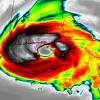'We need to shut it down': New measles case raises concerns about ...

New Zealand's immunisation rate has fallen over the course of the Covid pandemic, raising concerns of a measles outbreak if a new case is not contained.
New Zealand is highly vulnerable to a new measles outbreak because of falling vaccination rates, experts say.
Health officials confirmed last night that a man had tested positive for measles after arriving in New Zealand from overseas.
Others were potentially exposed when the man went to a supermarket, hotels and a music festival in Auckland, the Bay of Plenty and Waikato.
“We need to shut it down really quickly,” said Bryan Betty, medical director at the Royal NZ College of GPs. “However, if it gets hold it is going to be very difficult to shut down.”
It is the first case of the highly infectious disease in New Zealand since 2019, when an outbreak grew to 2200 cases across the country. The epidemic also spread to Samoa, killing 80 people.
In the four years since that outbreak, vaccination rates in New Zealand have steadily fallen while the public health focus was on Covid-19.
As of December, 82 per cent of 2-year-olds were up to date with their immunisations, down from 91 per cent before the pandemic. For Maori children, the rate is just 66 per cent. Coverage of 90 to 95 per cent is needed for herd immunity.

“We’ve got measles coming in, in combination with low immunisation rates for our children, that is potentially really, really problematic, especially in areas of high need,” Betty said.
“It spreads like wildfire, so the worry is that if it got hold, we would have a situation similar to what we had prior to Covid.”
Professor Michael Baker, an epidemiologist at the University of Otago, said it was inevitable that measles cases would arrive in New Zealand once travel restrictions introduced during the Covid-19 pandemic were removed.
He said the best public health response to measles was sustaining high vaccine coverage and rapidly responding to any clusters of cases.
“Immunisation programmes have gone backwards to some degree in most countries because of the division of resources into Covid-19 and various other factors,” he said.
“So this is now time to be working on boosting immunisation across all age groups.”

Baker said some children were not vaccinated because they were migrants who arrived in New Zealand after routine immunisations. Others chose not to get vaccinated. Ministry of Health data shows parents or caregivers for 6.5 per cent of children had declined at least one vaccination at 24 months old.
In New Zealand, the two doses of the measles vaccine are offered free at 12 months and 15 months. Two doses of the vaccine provide 99 per cent protection from the disease for life.
The measles reproductive rate - the average number of people directly infected by a single infectious individual - is between 12 and 15. The Omicron strain of Covid-19 was between 8 and 10.
“It is probably the most infectious disease that we ever encounter,” Baker said. “You can go into a doctor’s waiting room half an hour after a child has been in there with measles and you can still get infected.”
CONTACT TRACING
Public health authorities are now contacting people who may have been exposed to the disease.
Anyone who is not immune and may have been exposed should call Healthline on 0800 611 116.
Symptoms can include a fever, cough, runny nose and sore and watery “pink” eyes. These are followed by a blotchy rash.


 New Zealand
New Zealand Argentina
Argentina  Australia
Australia  Austria
Austria  Brazil
Brazil  Canada
Canada  Chile
Chile  Czechia
Czechia  France
France  Germany
Germany  Greece
Greece  Italy
Italy  Mexico
Mexico  Nigeria
Nigeria  Norway
Norway  Poland
Poland  Portugal
Portugal  Sweden
Sweden  Switzerland
Switzerland  United Kingdom
United Kingdom  United States
United States 

































